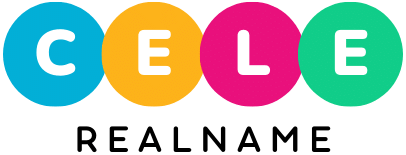
The academic world is both complex and multifaceted. Educational institutions face numerous challenges, from developing innovative teaching methods to managing institutional logistics. Professional consulting services have emerged as valuable partners in guiding educators, administrators, and policy-makers through these challenges. This article explores how consulting support can streamline decision-making, foster improvements, and improve academic outcomes.
Understanding the Role of Professional Consulting in Education
Professional educational consultants serve as external experts who offer insights, strategies, and solutions for various academic challenges. These individuals or firms specialize in assessing different aspects of an institution, such as curriculum design, administrative processes, policy implications, and financial planning.
One of their primary responsibilities is to bring a fresh perspective to problems. Their expertise spans multiple areas, including pedagogical techniques, regulatory compliance, and infrastructure planning. By relying on their experience, schools and universities can benefit from tried-and-tested strategies while exploring innovative solutions.
Key Areas Where Consulting Support Can Help
Strategic Planning
Educational institutions face constant pressure to adapt to changing societal and technological trends. Developing a strategic plan that aligns with these shifts can be daunting. Professional consultants help institutions create frameworks to identify goals and establish actionable steps to meet them. Whether shaping a research agenda or driving student success initiatives, consulting services lay the foundation for sustainable growth.
Curriculum Development
An engaging and effective curriculum is at the heart of any academic institution. However, designing one that meets modern standards and learner needs is complex. Professional consultants can assist in curriculum evaluation and redesign, incorporating inclusive and evidence-based teaching methods. Their insight ensures students gain relevant skills and knowledge while remaining competitive in a dynamic job market.
Research and Policy Analysis
Educational policies impact every level of academia, from classroom instruction to administrative decision-making. Consulting experts help institutions interpret such policies and design strategies to comply with regulations. They may also assist with research initiatives, providing data-driven analyses to shape academic priorities and improve institutional rankings.
Facility and Resource Optimization
Managing an institution’s physical and financial resources is critical for its success. Professional consultants can assess usage patterns, environmental impact, and budget allocations to recommend improvements. For example, designing new spaces or upgrading existing ones benefits significantly from expert advice, particularly when aligned with plans like a charter school design plan or other institutional goals.
The Benefits of Partnering with Consultants
Access to Expertise
Consultants bring specialized knowledge and experience to academic settings. Their insights help institutions address issues more thoroughly than they might with internal resources alone. When navigating challenges like restructuring, curriculum updates, or accreditation, their expertise ensures compliance and innovation.
Objective Analysis
Internal teams may struggle to view existing systems and practices unbiasedly. Professional consultants, as external agents, offer objective assessments. This impartial perspective helps uncover inefficiencies and potential opportunities for improvement that may have been previously overlooked.
Cost and Time Efficiency
While hiring consultants involves upfront costs, it can save money and time in the long run. Their ability to identify problems quickly and propose actionable solutions means institutions can avoid trial-and-error approaches that drain resources. Additionally, consultants often help organizations attract funding by aligning their practices with donor or governmental expectations.
Enhancing Institutional Reputation
A well-executed consulting project can enhance an institution’s reputation for excellence and innovation. For example, an improved curriculum, better infrastructure, or increased student success rates can position an institution as a leader in its field. This can attract both prospective students and top-tier faculty members in the future.
Selecting the Right Consulting Support
When considering professional consulting for your institution, evaluating a consultant’s qualifications, experience, and track record is crucial. Look for individuals or teams with proven expertise in the specific area where assistance is needed. Trustworthiness, communication, and a collaborative approach are key factors that contribute to the partnership’s success.
Additionally, ensure that goals and expectations are clearly defined at the beginning of the consulting engagement. This alignment allows consultants and institutional stakeholders to work closely together while achieving desired outcomes efficiently.
Conclusion
Professional consulting support has become an indispensable ally for academic institutions seeking to stay competitive in an evolving landscape. By assisting with strategic planning, curriculum design, resource optimization, and compliance, consultants help schools and universities operate more efficiently and effectively. Their expertise ensures that educational institutions meet the needs of students, staff, and the communities they serve.
Partnering with the right consultancy can be the key to unlocking an institution’s full potential. By leveraging external expertise, academia can overcome challenges, seize opportunities, and adapt to the complexities of the modern world.
